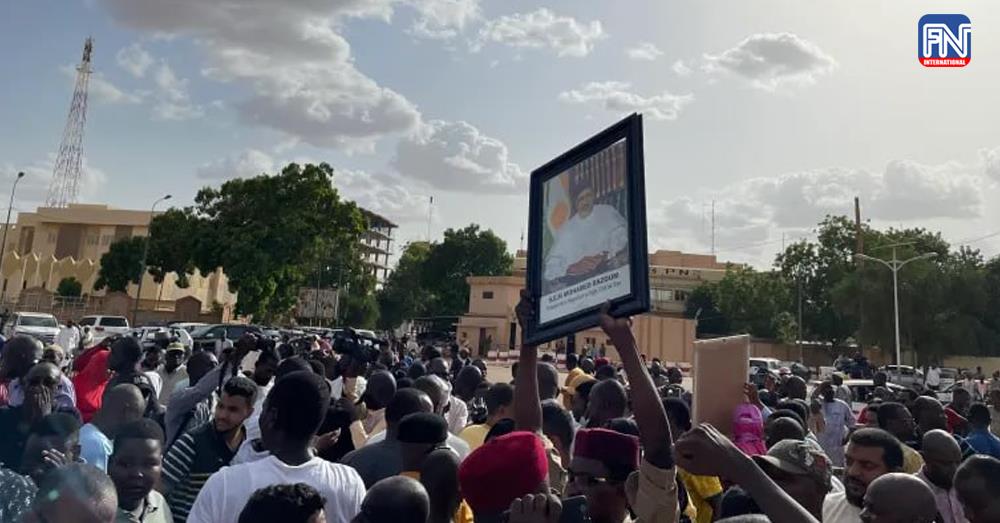AFRICA, Aug 2 (Aljazeera) - West African regional bloc ECOWAS sent a delegation to Niger on Wednesday to negotiate with the military officers who seized power in last week’s coup, while regional defence chiefs began a two-day meeting in neighbouring Nigeria.
The Economic Community of West African States (ECOWAS) has imposed sanctions on Niger and said it could authorise the use of force if the coup leaders do not reinstate elected President Mohamed Bazoum within a week from last Sunday.
“The military option is the very last option on the table, the last resort, but we have to prepare for the eventuality,” said Abdel-Fatau Musah, ECOWAS commissioner for political affairs, peace and security.
“There is a need to demonstrate that we cannot only bark but can bite,” he told reporters in Abuja.
The delegation to Niger is being led by former Nigerian military leader Abdulsalami Abubakar, who was expected in Niamey on Wednesday to start talks with the military government, Musah said.
Other details about the mission remain unclear. Amos Lungu, spokesperson for the ECOWAS Commission, did not respond to Al Jazeera’s requests for comment.
The military government in Niger is led by the former head of Bazoum’s presidential guard, General Abdourahmane Tchiani, who detained Bazoum in his palace on July 26 and later declared himself head of state.
ECOWAS had previously sent Benin President Patrice Talon and Chaidan interim military leader Mahamat Idriss Deby to negotiate with Techiani.
The bloc has struggled to contain a democratic backslide in West Africa, as member states Mali, Burkina Faso, and Guinea have also seen coups in the last two years, along with an attempted coup in Guinea-Bissau.
But now ECOWAS has taken its hardest line yet on Niger, announcing a number of sanctions including the closure of the region’s borders with the country.
The bloc also slapped financial sanctions on the coup leaders and the country, freezing “all commercial and financial transactions” between member states and Niger, one of the world’s poorest nations, often ranking last on the United Nations Human Development Index.
A source at Niger’s power company Nigelec told the AFP news agency on Wednesday that neighbouring Nigeria has disconnected the high-voltage line transporting electricity to Niger. The latter depends on Nigeria for 70 percent of its power.
The sanctions have prompted Mali and Burkina Faso, both still ruled by the military, to say that any intervention in Niger would be considered a declaration of war against them, too.
Niger is a key Western ally in a fight against armed groups and the coup has been condemned by foreign powers who fear it could allow the groups to gain ground.
“The UK very much welcomes ECOWAS’ actions and [they] are indeed decisive actions with a strong commitment to democracy,” said British Foreign Secretary James Cleverly after meeting Nigerian President Bola Tinubu in Abuja on Wednesday.
The coup leaders announced overnight they had reopened Niger’s land and air borders with Algeria, Burkina Faso, Chad, Mali and Libya after closing them last week.
